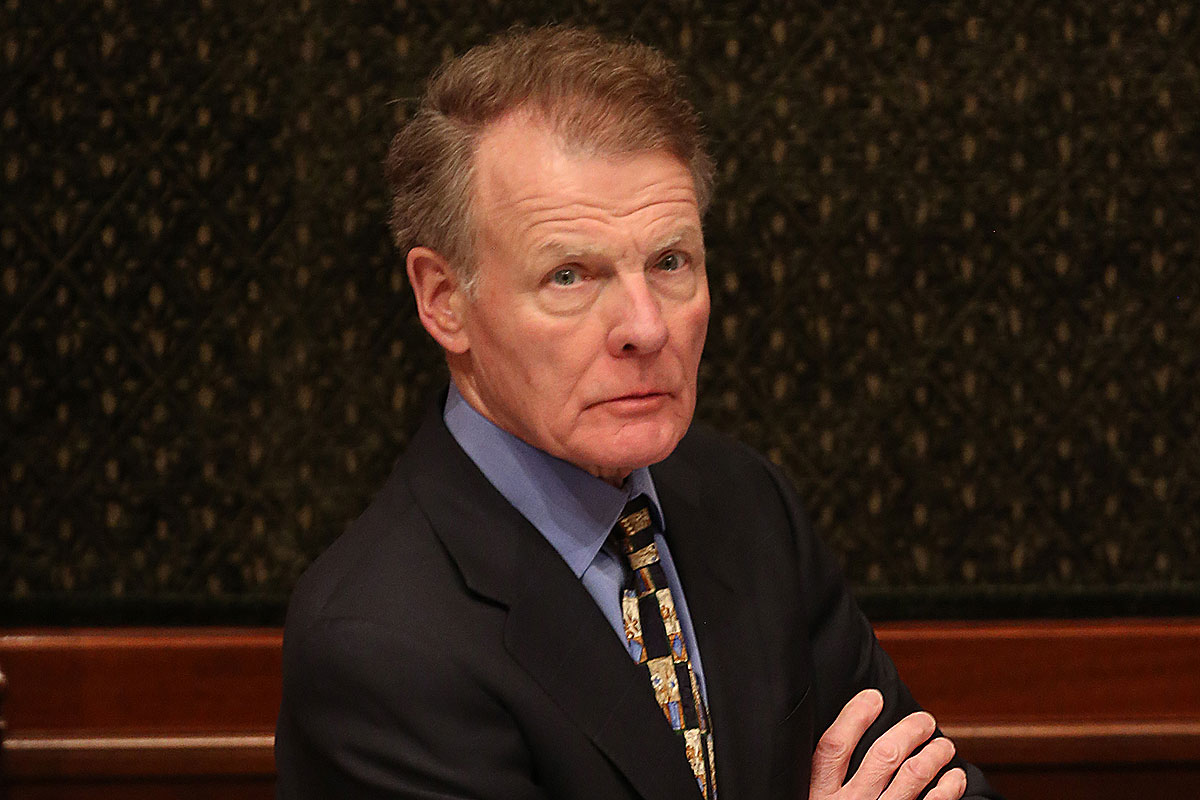The simple answer is that, like redistricting, term limits poll really, really well. The last time that the Paul Simon Institute polled the issue, 79 percent of respondents were in favor, versus just 18 percent against. And, like redistricting, they are popular in states that aren't as dysfunctional as Illinois.
So what do term limits do? Broadly speaking, not a lot:
Most of the advocates’ arguments in favor of term limits really don’t hold up. If they argue that it’s going to [create] a more diverse legislature or with fewer professional politicians or less spending and more campaign competition – none of that stuff holds up. We don’t find any impact at this point. There’s some argument that term limits are somehow going to reduce government spending. That doesn’t hold up at all. There are several studies on this. Most of them find that [term limits] actually increase government spending rather than decreasing it.
That's Chris Mooney from the Institute of Government and Public Affairs at the University of Illinois, who's studied the issue for years, speaking on Chicago Tonight. My research—which includes Mooney's work—turned up pretty much the same thing regarding the benefits of term limits. The way I put it: "If there’s a consensus, it seems to be… eh."
On the other hand, opponents say that by limiting the amount of time representatives can serve, legislators will have less knowledge, which would sow more confusion, and give more power to lobbyists. Is that true? Researchers have had trouble identifying patterns of bad outcomes, though one study did find some deleterious effects: When politicians are not eligible for reelection, taxes, spending, and borrowing costs are higher and economic growth is lower than when politicians are eligible for reelection, regardless of how long they'd been in office. That same study found that politicians' performance improves the longer they are in office, which suggests term limits would hurt a state.
Of course, Illinois managed to get high borrowing costs and low economic growth without term limits. Neither is a failsafe; governments can find all sorts of ways to do things right or wrong under different regimes.
If that's the case, why else would term limits be so popular? Another short answer is Illinois's powerful elder statesman, House Speaker Michael Madigan. But as Rich Miller has noted, implementing term limits probably wouldn't have any effect on him:
Yes, the issue is pretty much solely political and more than a bit phony. Even if the legislature passed a term-limits proposal this November (and it won't), the limits wouldn't actually get in front of voters for two more years and then wouldn't start limiting terms for another 10 years. By that time, House Speaker Madigan will be 86 years old, and he could still run for a state Senate seat. But, hey, the House Democrats are notorious for using federal issues like Medicare and Social Security in state legislative races, so, whatever. It is what it is.
Term limits could prevent the accumulated power of a future Madigan, for good or ill, but at the likely exchange of having a greener legislature, which would give more power to the governor's office and political money. "It is what it is," "there's very little impact," and "eh" are a good summary. It's much to do about not much, though in the context of more contentious issues like pension reform and redistricting, that can make term limits useful if not terribly interesting.



